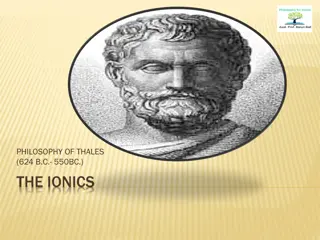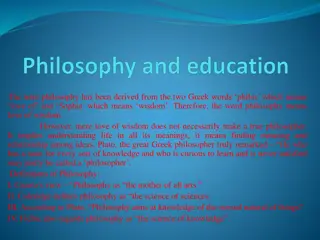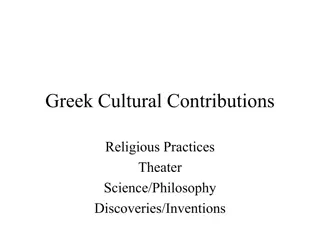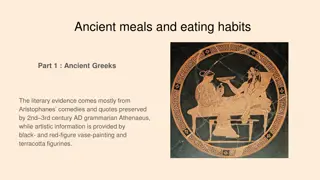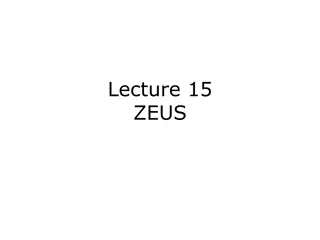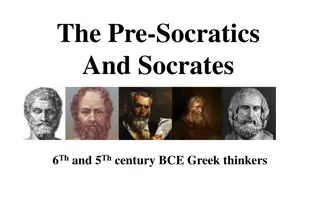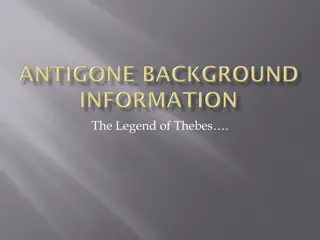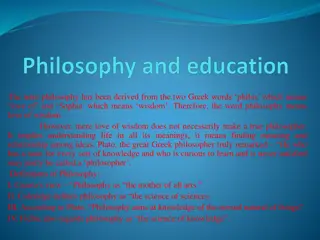Introduction to Ancient Greek Philosophy: From Thales to Democritus
Ancient Greek philosophy emerged in the 6th century BC, exploring various subjects like astronomy, mathematics, metaphysics, and ethics using reason. This introduction delves into the lives and contributions of key philosophers including Thales, Pythagoras, and Democritus, known for their advancements in geometry, mathematics, and atomism.
Uploaded on Sep 25, 2024 | 4 Views
Download Presentation

Please find below an Image/Link to download the presentation.
The content on the website is provided AS IS for your information and personal use only. It may not be sold, licensed, or shared on other websites without obtaining consent from the author.If you encounter any issues during the download, it is possible that the publisher has removed the file from their server.
You are allowed to download the files provided on this website for personal or commercial use, subject to the condition that they are used lawfully. All files are the property of their respective owners.
The content on the website is provided AS IS for your information and personal use only. It may not be sold, licensed, or shared on other websites without obtaining consent from the author.
E N D
Presentation Transcript
Introduction to Greek Philosophy Prepared by Dr. Anosh Narzary Asst. Prof. Dept. of Philosophy Bengtol College, Bengtol
Introduction to Greek Philosophy GREEK PHILOSOPHY Ancient Greek philosophy arose in the 6th BC Philosophy was used to make sense of the world using reason. It dealt with a wide variety of subjects, including astronomy, mathematics, political metaphysics, ontology, logic, biology, rhetoric and aesthetics. epistemology, philosophy, ethics,
Pythagoras was an ancient Greek philosopher and mathematician, best known for his contributions to geometry and for the Pythagorean theorem, which is named after him. He is one of the most famous and influential mathematicians and thinkers of ancient Greece.
Democritus was an ancient Greek philosopher born around 460 BCE in Abdera, Thrace (in modern-day Greece). He is best known for his contributions to the development of atomism, a philosophical theory that posits that the universe is composed of indivisible, fundamental particles called "atoms. Democritus and his mentor Leucippus are often credited with the development of this concept, although many of their writings have been lost, and much of what we know about their ideas comes from later philosophers and commentators.




